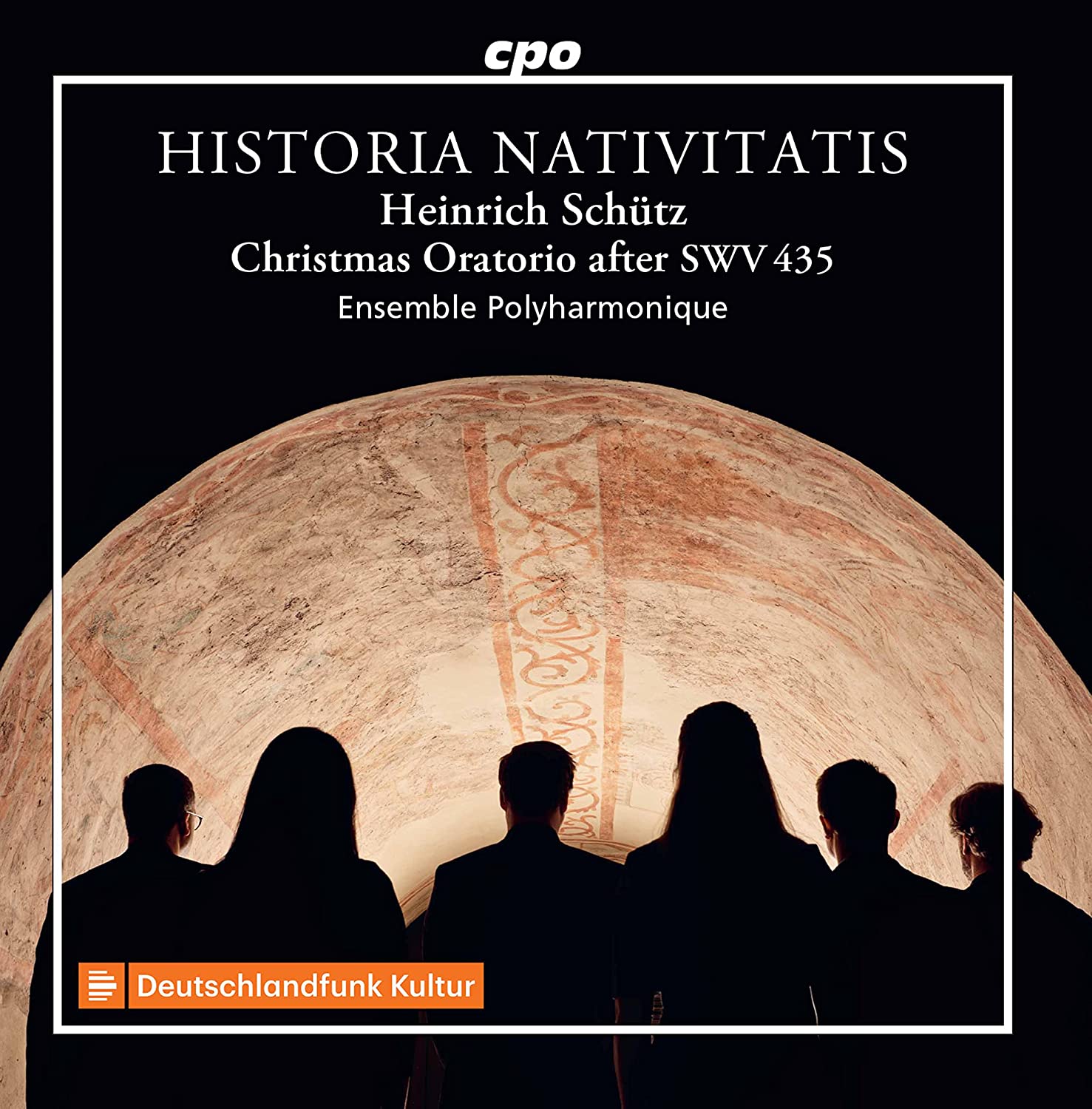Ensemble Polyharmonique
84:25 (2 CDs in a single jewel case)
cpo 555 432-2
Click HERE to buy this recording on amazon.co.uk
[Please use these sponsored links – we have no other source of income!]
Ensemble Polyharmonique, led by their primus inter pares and alto Alexander Schneider, have embarked on an interesting project: Schütz published the narrative of his Historia without the rich and characterful intermedii scored for the richly furnished Dresden court orchestra, with the comment that these additional parts could be hired for a small fee. He was clearly trying to make the Evangelista’s narrative widely available as the framework for a Christmas reflection and encouraged prospective performers to compose or gather their own material for intermedii to be inserted in his narrative. This is what Schneider’s Ensemble have done, and the result – performed by the six singers, two violins and a basso continuo of organ, theorbo and harp, with gamba/violone and dulzian/flauto – makes a good programme, bringing the outline of the work within reach of those who do not have the extensive resources of Schütz’s Kapelle in Dresden. A note says that the score and parts of the entire programme are available online at www.polyharmonique.eu , but I think you would have to ask them for it.
The narrative is divided into three parts: there is a Marian/Advent section (tracks 1-5) featuring Hammerschmidt, Michael, Schütz, Eccard and Frank’s fine Hosianna dem Sohne David before we reach the Birth of Jesus itself and the message alerting the Shepherds, where Schütz’s narrative based on Luke’s gospel forms the storyline. The intermedii include just one from Schütz’s Weihnachtsoratorium – Ehre sei Gott, with its scoring of six voices, two violins and fagotto with bc fitting the available resources exactly. Otherwise, the material includes interesting versions – usually more richly set than we hear in our carol services – of well-known German Christmas music like Ein Kind ist uns geboren, Joseph lieber Joseph mein, Es ist ein Ros entsprungen and Psallite unigenito.
On CD 2, we move to Herod, the visit of the Three Kings and the Flight into Egypt. Here there are more treasures: a version by Schein of Nikolaus Herman’s chorale associated with Christmas, Lobt Gott, ihr Christen allzugleich, that features at the end of BWV 151 and 195; a setting by Hammerschmidt based on the Kings’ enquiry to Herod, scored for voices and two violins; and music by Carl, Gesius and Briegel setting the Matthean texts that intersperse the narrative before Schütz’s setting of John 1.14 from his Geistliche Chor-musik (1648) and Scheidt’s triumphal setting of In dulci jubilo conclude this well-crafted Historia.
And the performances as usual with this group are excellent. OVPP singing, with a handful of instruments and a well-tuned basso continuo group in a flattering but clean acoustic make this a welcome addition to their discs of 17th-century German music. Let’s hope many will that up their – and Schütz’s – offer to plan an inventive and tuneful Historia next Christmastide.
David Stancliffe
